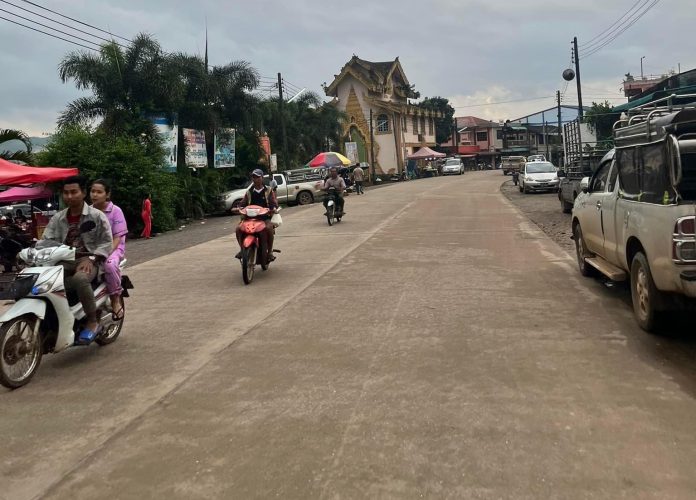Chinese nationals living in Payathonzu, located 150 miles (241 km) south of the Karen State capital Hpa-An, are paying above market prices for goods and services, according to residents. This has caused prices to skyrocket beyond the means of most locals.
The Chinese are reported to be working at casinos and online scam centers run by the Democratic Karen Benevolent Army (DKBA). They are also opening businesses and renting houses in Payathonzu, which is on the border next to the Three Pagodas Pass into Thailand.
The military regime in Naypyidaw does not control the town, as it is administered by a coalition of Ethnic Armed Organisations (EAOs), including the DKBA. The Karen National Union (KNU), the KNU/KNLA Peace Council (KPC), the Karen Border Guard Force/Karen National Army (BGF/KNA), and the New Mon State Party (NMSP) also operate in Payathonzu.
The DKBA signed the 2015 Nationwide Ceasefire Agreement (NCA) with the Myanmar military but have not allied itself to the regime, which has taken control of Naypyidaw since the 2021 coup. However the DKBA has met with the regime several times over the last three years to discuss the NCA.
Most of the Chinese nationals who are moving to Payathonzu used to operate casinos and online scam centers in Myawaddy Township, 100 miles (160 km) north along the Thai border. But, many have been forced to leave due to fighting which erupted last April between the military and KNU-led resistance forces.
The BGF/KNA also ordered all foreigners working in cyber scam centers to leave the area it controls in Myawaddy, including the Shwe Kokko New City project, by Oct. 31. Since May, at least 3,000 Chinese nationals have moved to Payathonzu and its surrounding areas controlled by the DKBA.
A casino on a plot of land about 20 miles (32 km) outside of Payathonzu is currently under construction. Automotive dealerships and restaurants have recently opened in the town catering to the new arrivals, according to residents.
“Currently, there are at least five restaurants opened by the Chinese, along with several car showrooms,” a resident told BNI. “They are constructing a large casino hall resembling those seen in Shwe Kokko town, along with a proper restaurant next to that large structure.”
Payathonzu residents are concerned that the Chinese will dominate the local economy and drive prices out of the reach of local people. Chinese are willing to pay above market rates for goods and services, such as house rental fees and laborers’ wages.
“They are known to pay significantly higher rents, leading landlords to eagerly lease to them. For instance, they rent houses for 15,000 [Thai baht] per month, compared to the typical rate of around 4,000 [baht], which has resulted in rising rents. While this isn’t an issue for them, it creates considerable stress for lower-income residents [who cannot afford the new higher rents],” said a taxi driver living and working in Payathonzu.
All Chinese nationals living in the town are reportedly ordered to pay the DKBA 10,000 baht per month to be allowed to stay in town. This means that they likely don’t have proper visas or documentation allowing them to stay legally in the country.
According to locals this money is split between the DKBA, the military regime troops stationed in Payathonzu, and other ethnic armed groups based nearby. Payathonzu’s administration officials have even started translating all of its announcements into Chinese for the benefit of the town’s new arrivals. BNI



